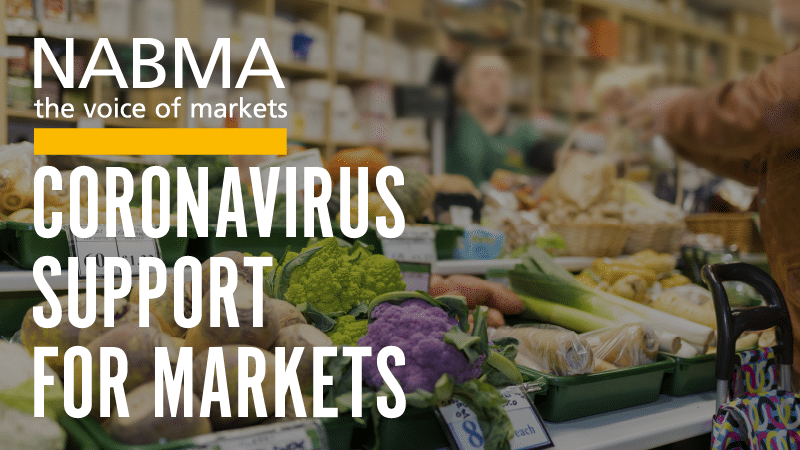Markets must be “COVID-safe” before reopening.
From 15 June, then all other non–essential retail can open, so long as the businesses can abide by social distancing rules on their premises.
The Prime Minister also mentioned that the government was today publishing new guidance for the retail sector detailing “measures they should take to meet the necessary social distancing and hygiene standards”.
NABMA will provide details of the government guidance as soon as available that will help determine which markets can open, and when.
We also refer members to the NABMA Social Distancing Guidance that was updated last week and , and forwarded to government, that includes recommendations for outdoor markets. We trust that this Guidance will also provide a useful tick box exercise to help markets determine their restart plans.
The full statement reads:
Thousands of high street shops, department stores and shopping centres across England are set to reopen next month once they are COVID-19 secure and can show customers will be kept safe, the Prime Minister Boris Johnson has confirmed today.
The Prime Minister has set out:
- Outdoor markets and car showrooms will be able to reopen from 1 June, as soon as they are able to meet the COVID-19 secure guidelines to protect shoppers and workers. As with garden centres, the risk of transmission of the virus is lower in these outdoor and more open spaces. Car showrooms often have significant outdoor space and it is generally easier to apply social distancing.
- All other non-essential retail including shops selling clothes, shoes, toys, furniture, books, and electronics, plus tailors, auction houses, photography studios, and indoor markets, will be expected to be able to reopen from 15 June if the Government’s five tests are met and they follow the COVID-19 secure guidelines, giving them three weeks to prepare.
Shops like supermarkets and pharmacies have been trading responsibly throughout the pandemic. Building on this and in line with the Government’s roadmap, reopening non-essential retail is the next step towards restoring people’s livelihoods, restarting the UK’s economy, and ensuring vital public services like the NHS continue to be funded.
Businesses will only be able to open from these dates once they have completed a risk assessment, in consultation with trade union representatives or workers, and are confident they are managing the risks. They must have taken the necessary steps to become COVID-19 secure in line with the current Health and Safety legislation.
The government is taking action to help businesses re-open and protect their staff and customers, including:
Publishing updated COVID-secure guidelines for people who work in or run shops, branches, and stores, after consultation with businesses, union leaders, Public Health England and the Health and Safety Executive.
Working with local authorities to continue to carry out spot checks and follow up on concerns by members of the public.
The updated guidance takes into account the best practice demonstrated by the many retailers which have been allowed to remain open and have applied social distancing measures in store. Measures that shops should consider include placing a poster in their windows to demonstrate awareness of the guidance and commitment to safety measures, storing returned items for 72 hours before putting them back out on the shop floor, placing protective coverings on large items touched by the public such as beds or sofas, and frequent cleaning of objects and surfaces that are touched regularly, including self-checkouts, trolleys, coffee machines and betting terminals, for example.
The vast majority of businesses will want to do everything possible to protect their staff and customers, but tough powers are in place to enforce action if they don’t, including fines and jail sentences of up to two years.
As per the roadmap, hairdressers, nail bars and beauty salons, and the hospitality sector, remain closed, because the risk of transmission in these environments is higher where long periods of person to person contact is required.
Business Secretary Alok Sharma said:
The high street sits at the heart of every community in the country. Enabling these businesses to open will be a critical step on the road to rebuilding our economy, and will support millions of jobs across the UK.
The guidance we have set out today provides a vital framework to get shops open in a way that is safe for everyone. It explains how retail workers who are not currently working can go back to work as safely as possible and feel confident in their workplace. And it reassures customers that shops are properly assessing the risks and putting in place measures to protect them.


